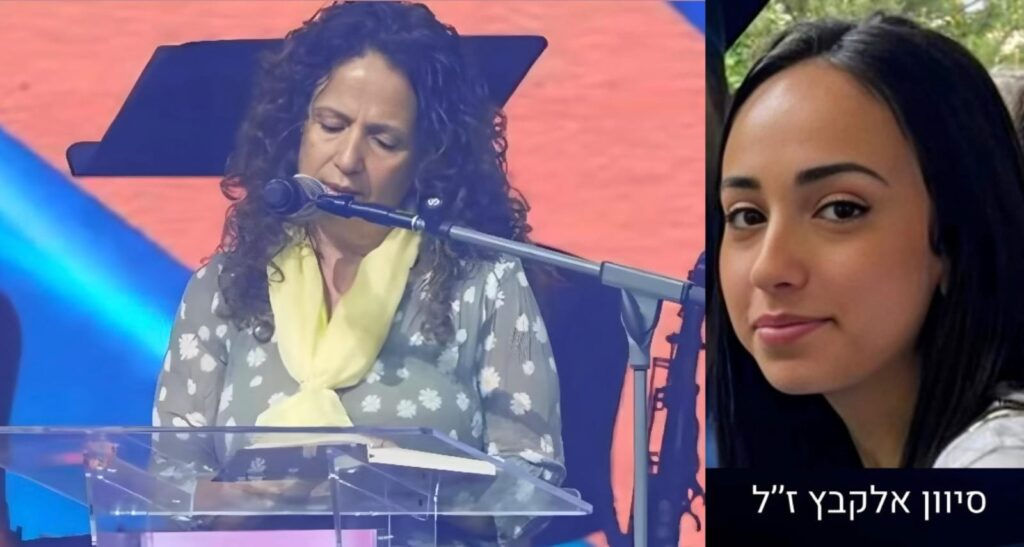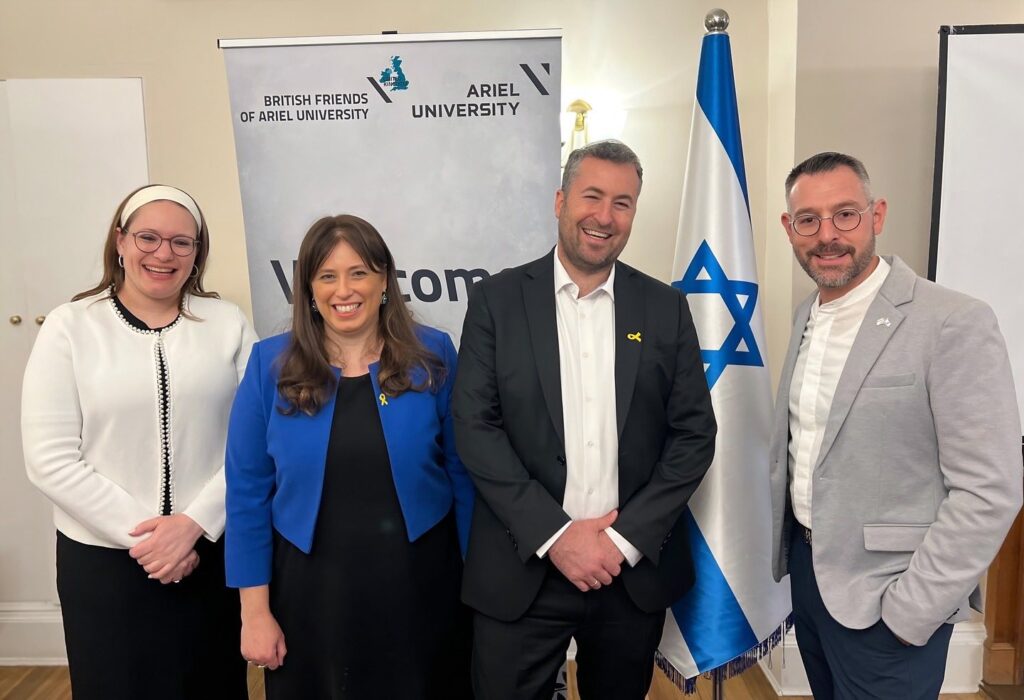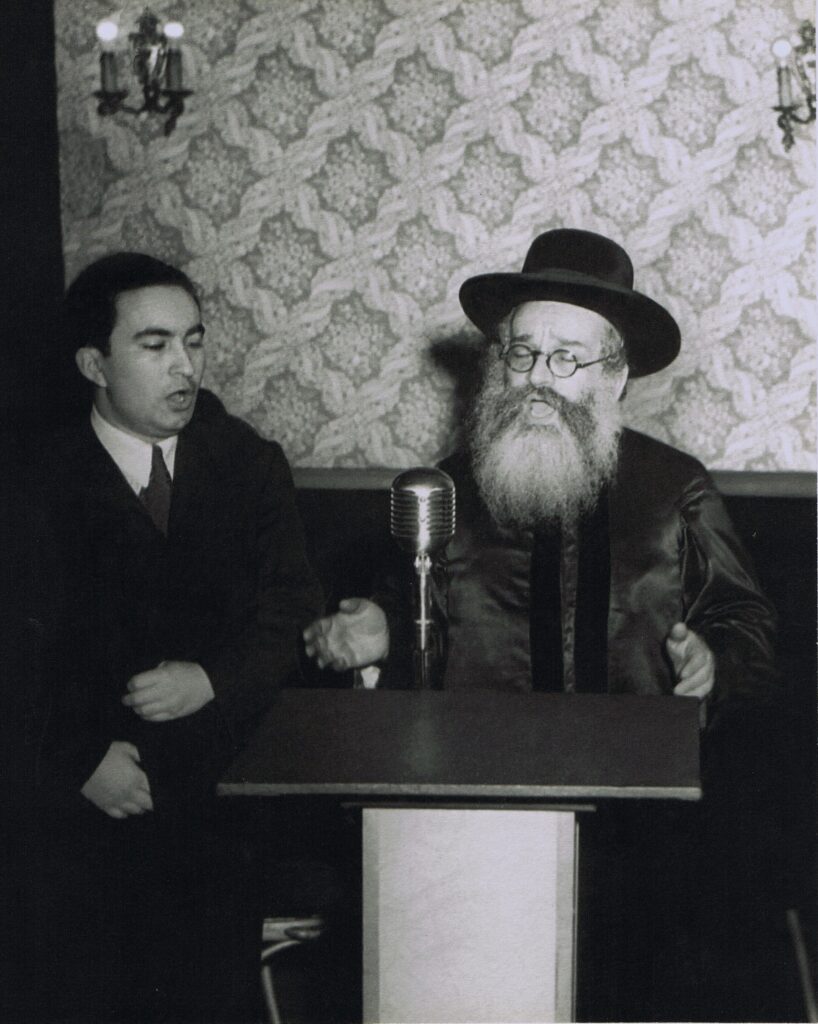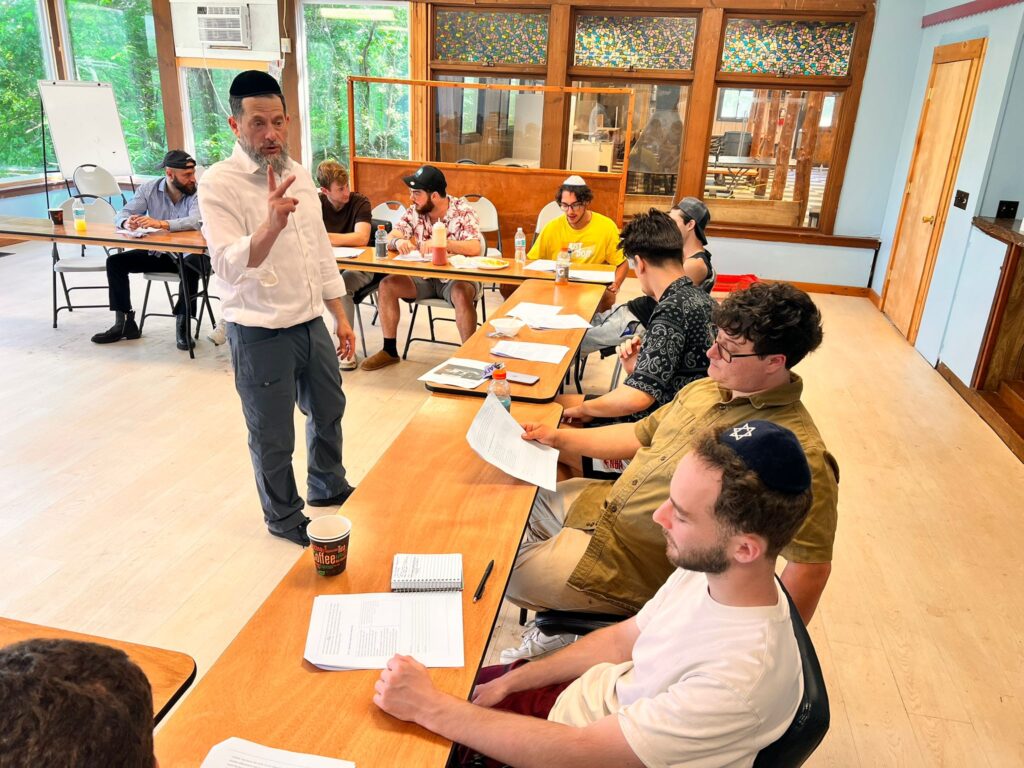Achieving Moral Clarity In A Confused World
By Sivan Rahav Meir
I was privileged to speak at the first event on behalf of the Friends of Ariel University, held at the Israeli Ambassador’s residence. The following are a few remarks:
“Especially in times like these, we’re reminded that knowledge alone is not enough. Academic knowledge, intellectual understanding—all of it means nothing if it isn’t grounded in the right values.
“We’ve seen the distortions coming out of some of the world’s most prestigious institutions—universities that are considered the pinnacle of higher learning. You can be a professor at Harvard, yet a three-year-old child can still tell right from wrong better than you—can still distinguish between Israel and Hamas with greater moral clarity.
“We’ve learned that, in the end, everything must be rooted in the right values. Without that foundation, every degree in the world is meaningless.
“There’s much talk about advocacy, and that’s important—but Rav Kook taught us the proper mindset. When the Balfour Declaration was issued here in Britain, recognizing the Jewish people’s right to a national home, Rav Kook said something profound: ‘I do not thank Britain—I bless it for the historic privilege it has to do what is right.’ In other words, Rav Kook wasn’t pleading or overflowing with gratitude. He didn’t see it as a favor. He knew that G-d chose us and chose the Land of Israel, and that this is the true direction of history—for the entire world. So he simply blessed Britain for having the merit of standing on the right side of history.
“Thank you to the many brothers and sisters who, even in these confusing and turbulent times, still stand today on the right side of history.”

Anat Alkabetz addressing Chabad women at their annual conference. (R) Sivan Alkabetz, Anat’s daughter, who was murdered in Kfar Aza on October 7
We are living in a new Jewish era.
Here’s a sentence that, not long ago, would’ve seemed impossible: A member of Kibbutz Kfar Aza was the keynote speaker at the national conference for Chabad women.
That speaker was Anat Elkabetz—mother of Sivan Elkabetz, who was murdered alongside her boyfriend Naor on October 7. Last week, Anat addressed thousands of women at Binyanei Ha’uma in Jerusalem.
“On Simchat Torah, we were trapped in four separate safe rooms for 22 hours,” she said. “And we came out changed. Sivan and Naor were murdered—along with 1,200 other Jews—simply for being Jews.
“My daughter died as a Jew, and ever since I’ve been asking: What does that mean? Is it enough that I was born Jewish? What does it mean to be part of a people? What does that demand of me, of all of us?”
She’s beginning to discover an answer.
“We saw where hatred leads. It’s their language, their childhood curriculum—hatred, ingrained. So let us respond with our own strength: with love, Jewish identity, faith, joy, and unity—from infancy. Let us bring Judaism into the public school system, not be afraid of it.
“Our justice and our morality are the truth. I’m learning Torah now—Chassidut, parashat hashavua. How did I not know about this treasure until now? You shouldn’t have to lose a child, or turn 57, to begin asking who you are and why you’re here.”
Thank you, Anat—and mazal tov. Just days after speaking about a new generation of Jewish children, her husband, Shimon, was the sandak at the brit milah of their newborn grandson: Ori.
{Parashat Matot-Masei: Destruction and Rebuilding
As the Jewish people prepare to enter the Land of Israel, the Torah tells us about the passing of Aaron Hakohen:
“Aaron Hakohen ascended Mount Hor at Hashem’s command and died there, on the first day of the fifth month in the fortieth year.”
That date—the first of Av—later became associated with national mourning. “When the month of Av begins, we reduce our joy.”
Is there a connection between Aaron’s death and the destruction of the Beit HaMikdash, which we mourn in Av? Our sages taught: “The death of a righteous person is comparable to the burning of G-d’s house.”
It’s a time of mourning, yes—but also a time to draw inspiration from the one who was lost. To continue in their ways. To become a living legacy.
So too with the Beit HaMikdash. We mourn its destruction, but we’re also charged to repair the sin that brought it down: sinat chinam, baseless hatred. In its place, we’re meant to practice ahavat chinam—unconditional love.
And who better embodied that love than Aaron Hakohen? As it says in Pirkei Avot: “He loved peace and pursued peace, loved all people, and brought them closer to Torah.”
In this month of Av, as we remember both destruction and redemption, may we live up to his example. n
Translated by Yehoshua Siskin and Janine Muller Sherr
Read more by Sivan Rahav Meir at SivanRahavMeir.com













